
"Nighttime is not the same anymore, sometimes is longer...I never know when the police could come..." F.C (13)
For generations, the abuse of the Mapuche, who at around 1.9 million make up about 10% of Chile's population, has cast a shadow over Chile's prosperity. The region of Araucanía, where many of them live, is one of the poorest in the country with a population of 957.224 which 17,2% lives below the poverty level. For decades they've demanded the return of ancestral lands now in the hands of forestry and agriculture companies or descendants of European colonizers.
In the absence of a responsive government that allows the restitution of the land, the level of conflict between different governments and the communities in the Araucanía region increased.
The Mapuche adopted measures of pressure like the squatting of the lands and properties demanded. This claiming right process and increased clashes generated an adverse reaction from the government that resulted in the implementation of a policy of judicial persecution and criminalization of collective action, harassment and persecution of leaders, and the militarization of these ancestral territories.
Between 2015 and 2022, a total of 2.241 bullets have been fired by the police in the region. "The police have drones watching us all night," Carolina Soto, a Mapuche Werken, says.
In 2019, she was detained and beaten up. A policeman, pressing his boot onto her neck, dislodged her shoulder.
The violence against the Mapuche has serious and specific consequences on children and teenagers, derived from repression, criminalization, raids, interrogations, and other actions carried out by members of the special operation forces. Different NGO's and the national institute of human rights counted 133 cases that include several police violence against Mapuche youth between 2015 and 2019, while many other cases has not been reported. Those cases are rarely reported through traditional media, which brings misinformation, letting the Chilean population know very little about the Mapuche struggle and their demands, which continues and evolves daily and is far from over.
This project was made possible with the support of the Magnum foundation.
Mapuche: La Eternidad del Mañana (2019-En progreso)
"Las noches ya no son iguales, a veces son más largas... No sé cuándo los Carabineros podrían venir a mi casa..." F.C (13)
Durante generaciones, el maltrato a los mapuches, que con cerca de 1,9 millones de habitantes que constituyen aproximadamente el 10% de la población chilena, ha ensombrecido la prosperidad del país. La región de la Araucanía, donde viven muchos de ellos, es una de las más pobres del país, con una población de 957.224 habitantes de los que el 17,2% vive por debajo del nivel de pobreza. Durante décadas han exigido la devolución de tierras ancestrales que ahora están en manos de empresas forestales y agrícolas o de descendientes de colonizadores europeos.
A falta de un gobierno receptivo que permita la restitución de las tierras y sus demandas, el nivel de conflicto entre los distintos gobiernos y las comunidades de la región aumenta.
Los Mapuche adoptan medidas de presión como la ocupación de las tierras y propiedades reclamadas. Este proceso de reivindicación y aumento de los enfrentamientos generó una reacción adversa por parte del gobierno que se tradujo en la implementación de una política de persecución judicial y criminalización de las acciones colectivas, hostigamiento y persecución a dirigentes y la militarización de estos territorios y comunidades.
Entre 2015 y 2022, un total de 2.241 balas han sido disparadas por la policía en la región."La policía tiene drones vigilándonos toda la noche", cuenta Carolina Soto, Werken Mapuche.
En 2019, cuenta que fue detenida y golpeada. Un carabinero, presionando su bota contra su cuello, le desprendió el hombro.
La violencia contra los Mapuche tiene consecuencias graves y específicas en los niños y adolescentes, derivadas de la represión, criminalización, allanamientos, interrogatorios y otras acciones realizadas por miembros de las fuerzas de operaciones especiales. Diferentes ONG's y el Instituto Nacional de Derechos Humanos contabilizaron 133 casos que incluyen varios hechos de violencia policial contra jóvenes Mapuche entre los años 2015 y 2019 mientras que muchos otros no han sido denunciados.
Estos casos son raramente reportados a través de los medios de comunicación tradicionales, lo que trae como consecuencia desinformación, permitiendo que la población chilena conozca muy poco sobre la lucha Mapuche y sus demandas, las cuáles evolucionan a diario y están lejos de finalizar.
Este proyecto ha sido posible gracias al apoyo de Magnum Foundation.
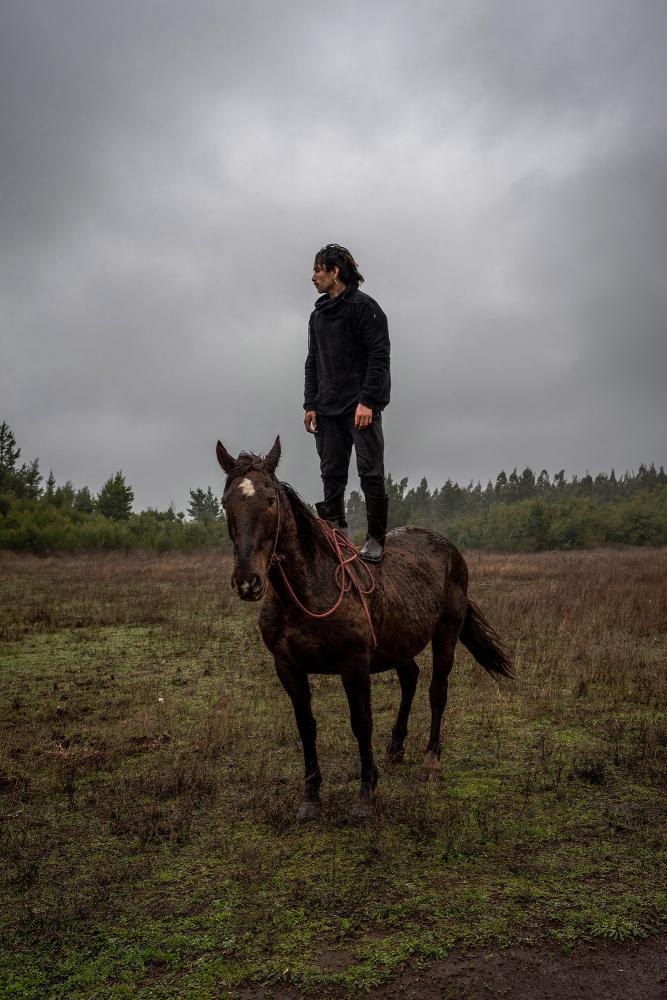
F. H. (21) Lives in a recovered land. He got shot in the mouth with a rubber bullet by the police. He and his family has suffered teasing and psychological violence from the police. Collipulli, Araucanía. July 20th, 2019.
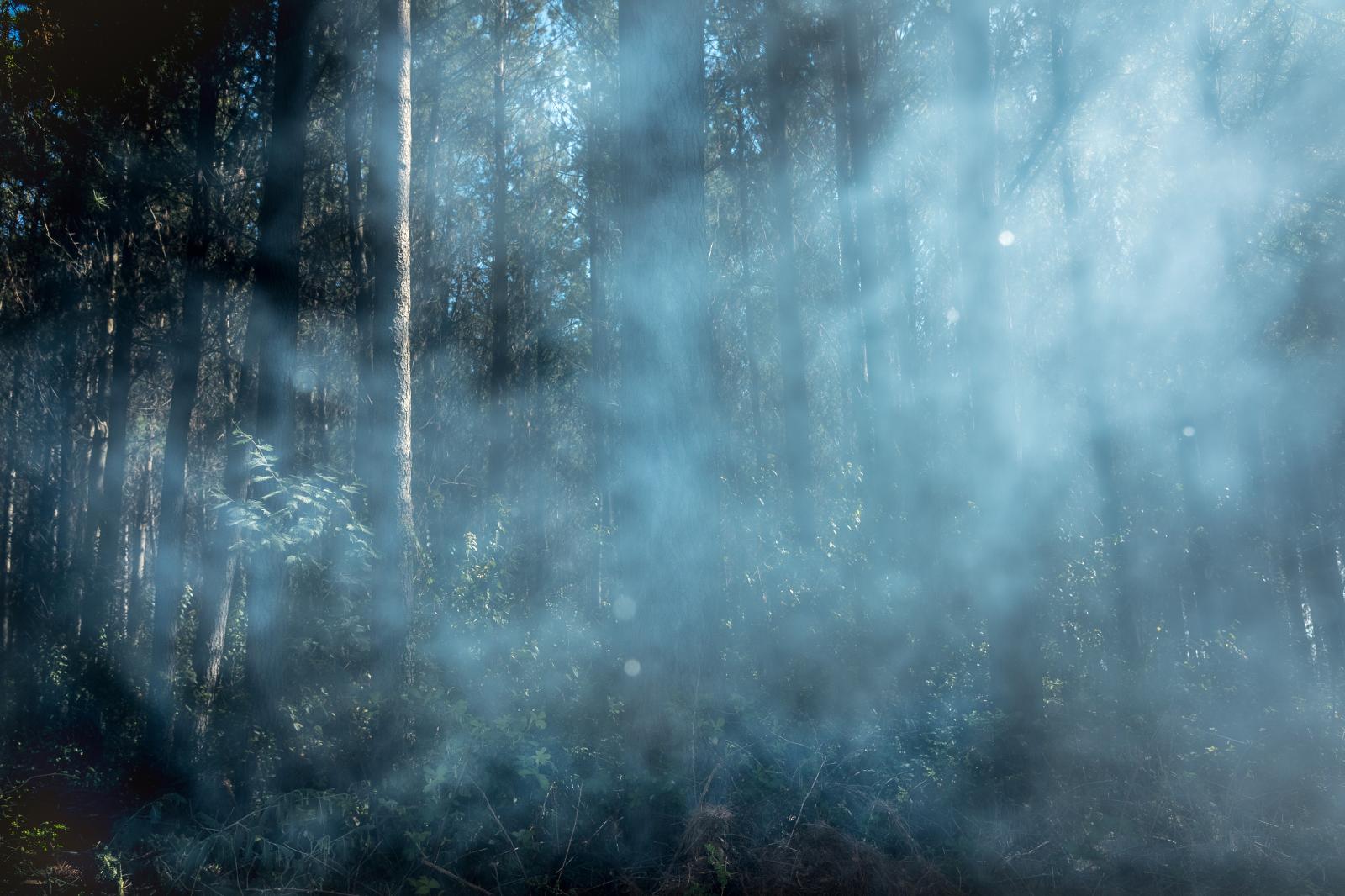
Smoke from a bonfire set for a traditional Nguillatun ceremony to recover a territory taken by the non native forest company Mininco. This rite works as a connection with the spiritual world to ask for well-being, strengthen the union of the community or thank the benefits received. Collipulli, Araucanía. October 4th. 2019.
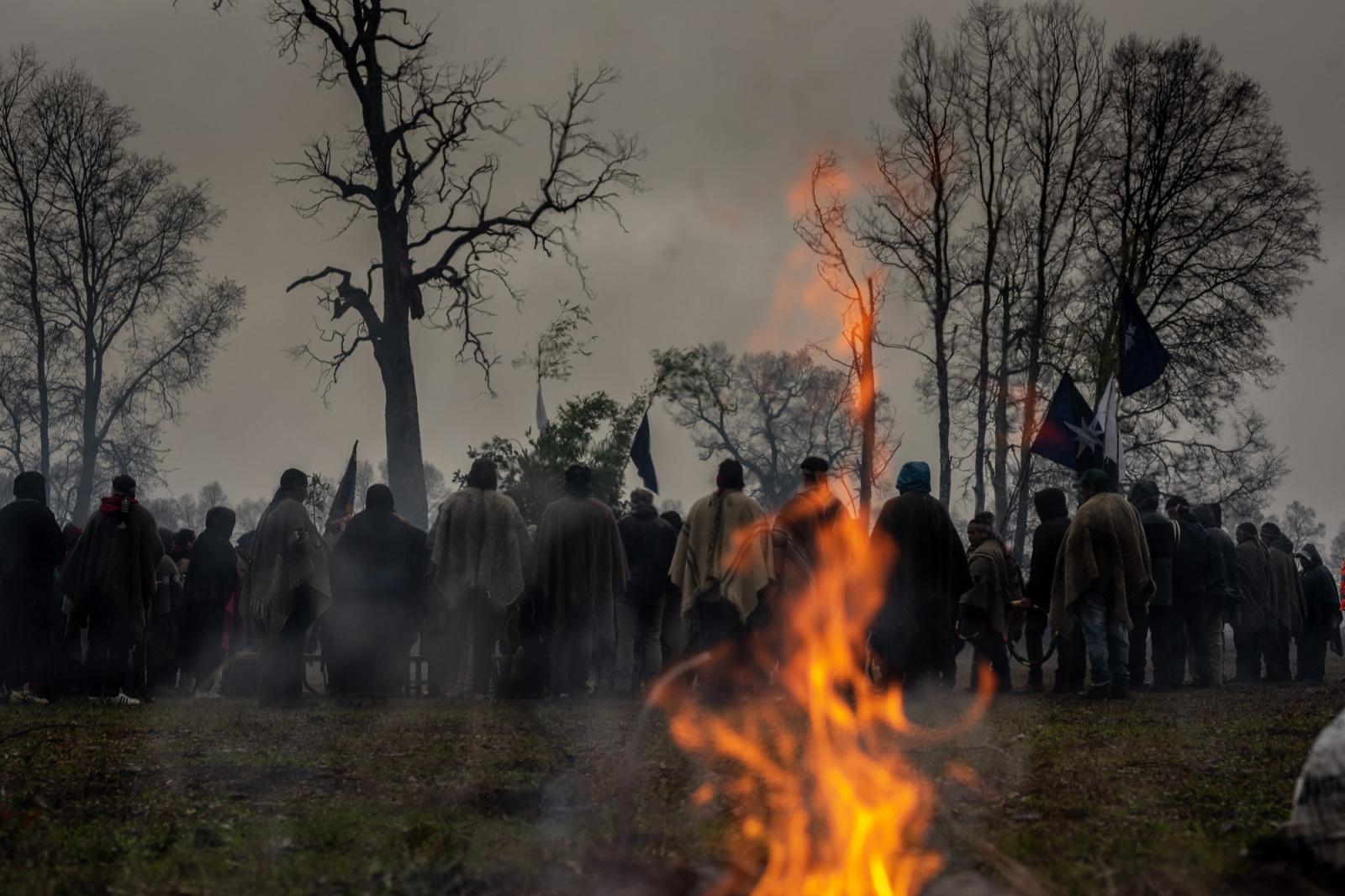
Wexipantu ceremony (New year) at Lof Rdanco, Curacautín. Araucanía. June 23rd. 2023.
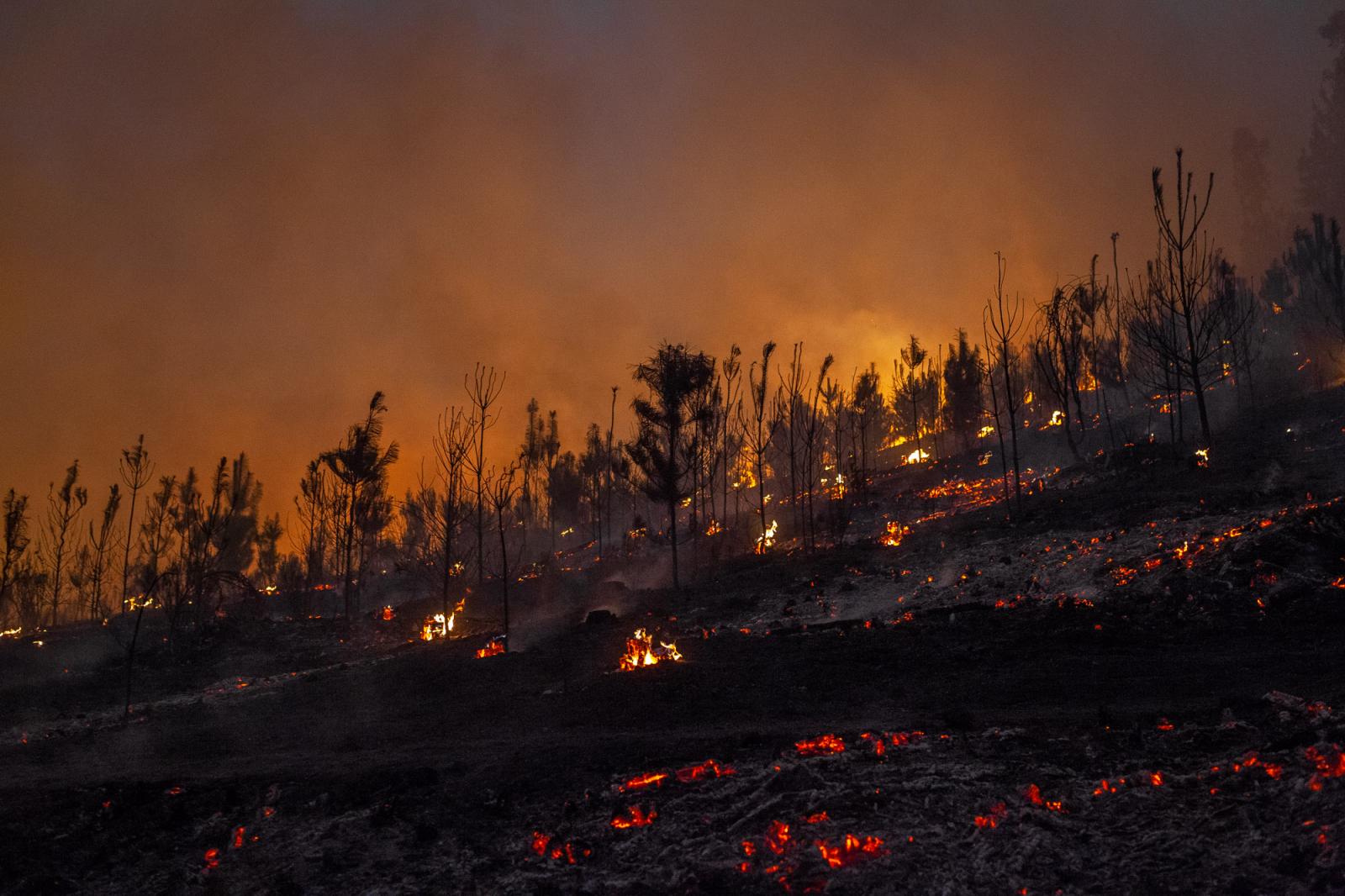
A forest fire near Bio Bio Region. Several forest company uses to burn their forest in order to renew their production, often they goes out of control causing huge impact in the environment and nearest towns, often most of them Mapuche communities. January, 2017. Between Maule and Bio-Bio regions. South of Chile.
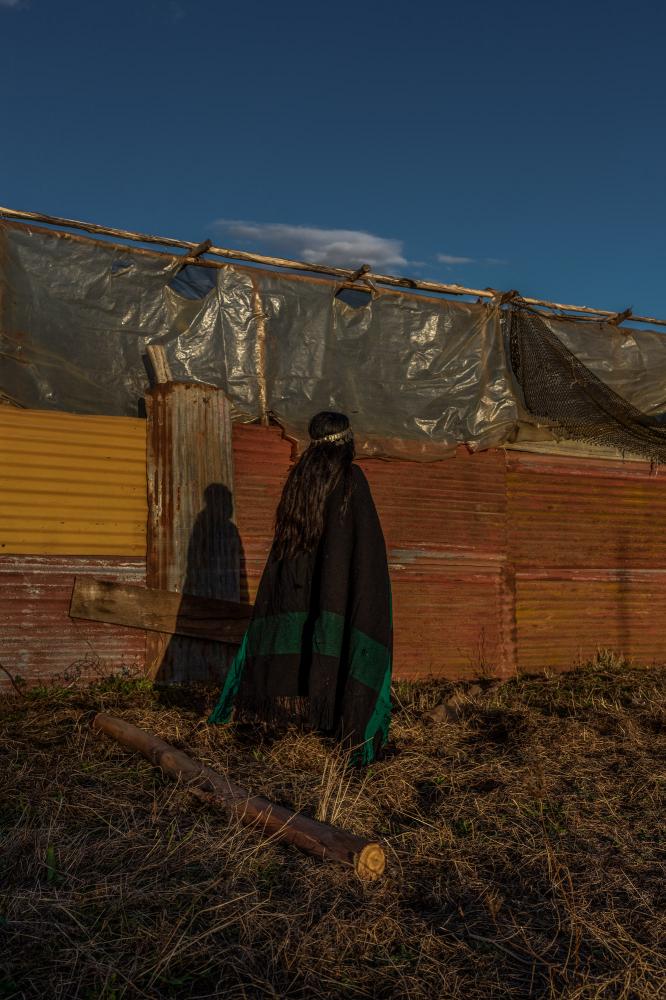
V.C.(12) Her father and brothers were falsely accused of murder and his house was violently raided by the police. Ercilla, Araucania. Chile. April 14th, 2019.
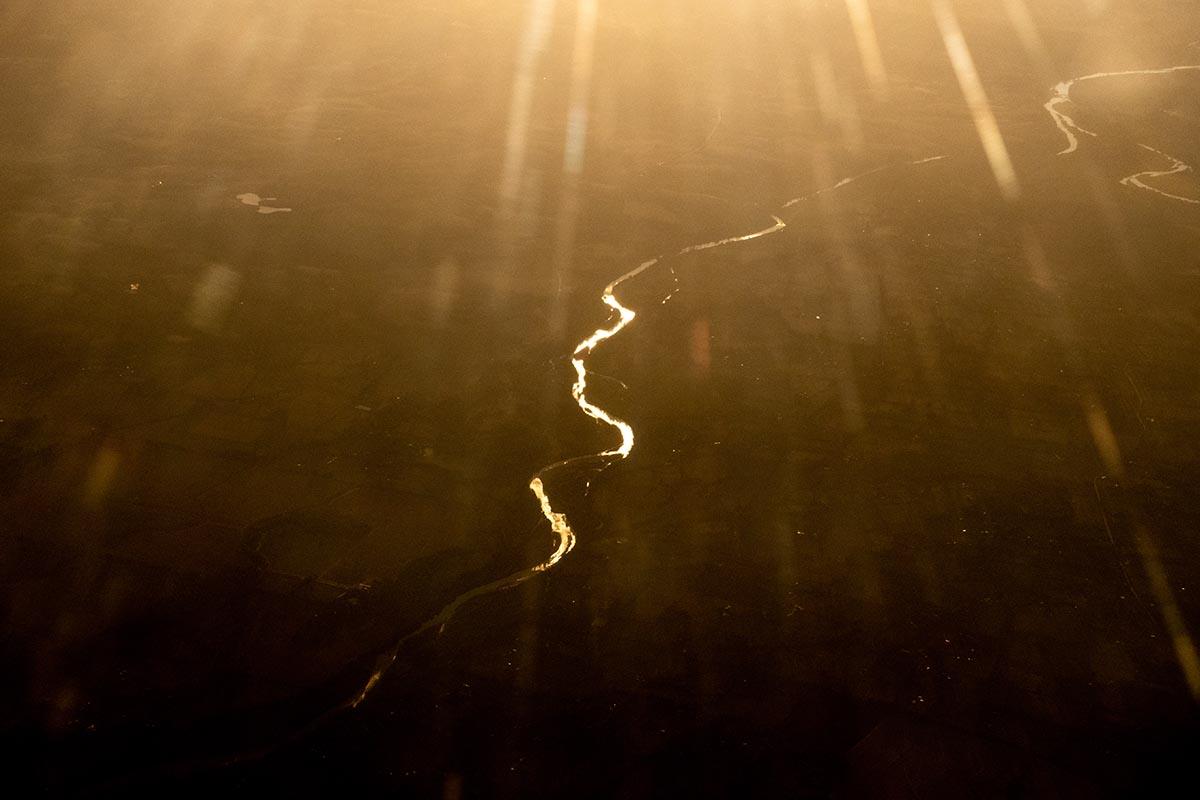
The Bio-Bio river. For the Mapuche nation the Bio-Bio river represent the natural border between the Mapuche lands and Chile to the north. March 4th.2022. Araucanía, Chile.

Mari Luz Colihuinca at home in the Ancapi Ñancocheo community, near Temucuicui on March 2nd. 2022. Araucania, Chile

The living room of the Torres-Toro family. One of the sons, S.T (14) was shot in the leg by the police during a raid at this home in Pidima area, AraucaniÌa, Since April 20, 2017 Silvestre lives with five bullets in his left leg, one of which is partially embedded in the kneecap and another dangerously close to the femoral artery. Araucania region, Chile. April 7th, 2019.

Riot police stands guard in a street during a protest in Chile, October, 2019. For the Mapuche community the National police institution (Carabineros) represents the physical action of repression ordered by agents of the state with political and economic interests. For decades, the institution has been questioned for its excessive use force and power abuse against civilians and Mapuche communities.
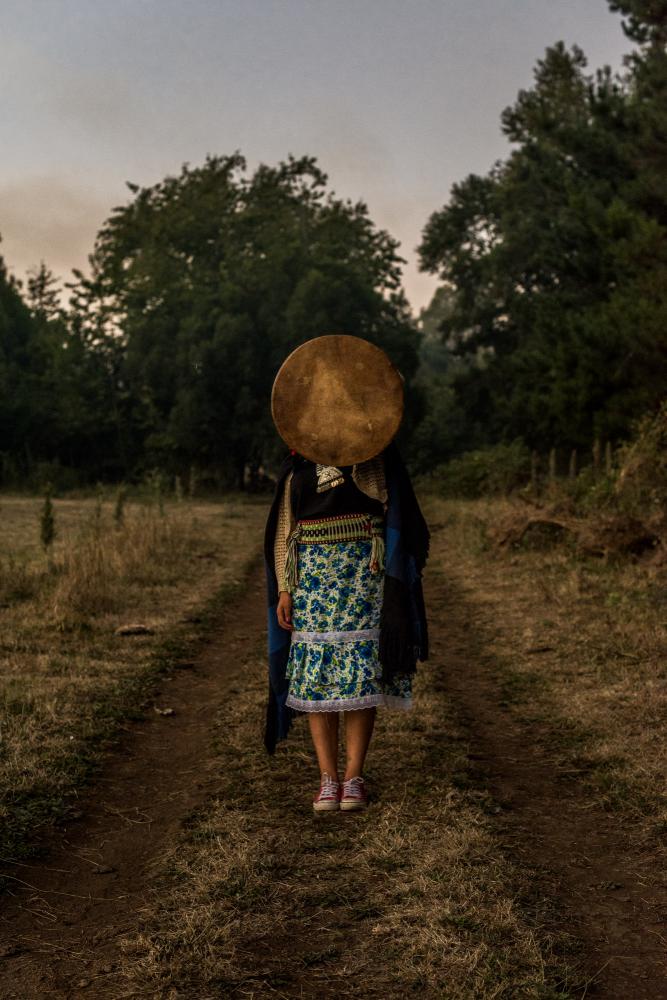
Belén Curamil(19) daughter of Alberto Curamil, Mapuche political prisoner holding a Kultrun, a Mapuche traditional musical instrument. Curacautín, Araucanía region, Chile. March, 23rd, 2019.
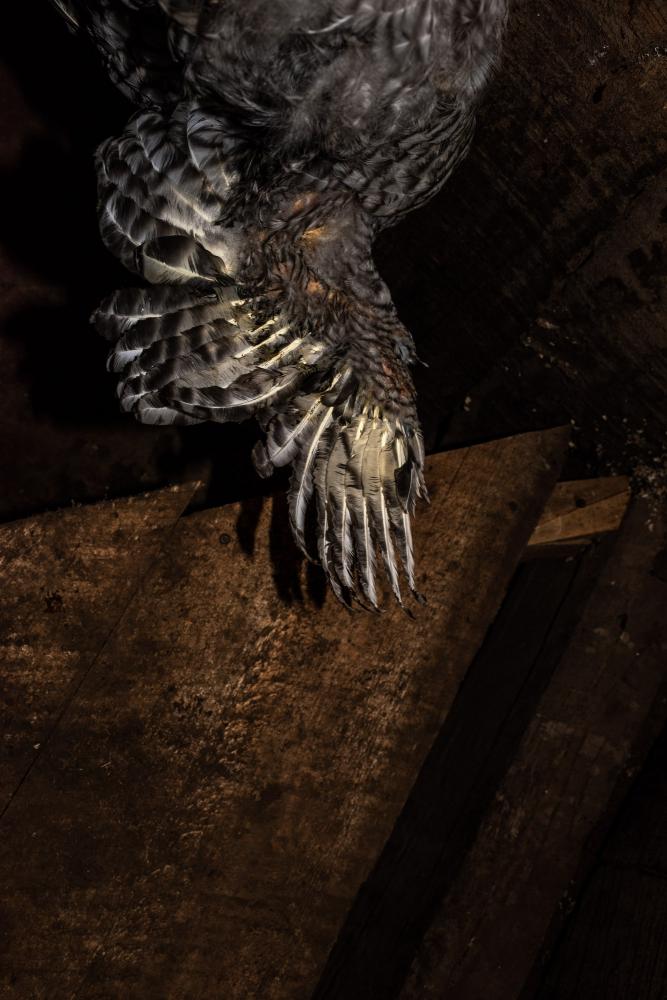
A chicken hangs in a wall of the house of Fabiola Antiqueo(20). She was shot in her left eye with a tear gas can fired with a shotgun by members of riot police on May 12th, 2017. As a result of the impact she lost her left eye. Carahue, Araucanía region. Chile. March 20th, 2019.

The house of Fabiola Antiqueo(20) she was shot in her left eye with a tear gas can fired with a shotgun by members of riot police on May 12th, 2017. As a result of the impact she lost her left eye. Carahue, Araucanía region. Chile. March 20th, 2019.

Carolina Soto (33) and her daughter Sofia(5) from Lof Dawulko Karulen community by the lagoon near their home on March 3rd, 2022. Araucanía, Chile

Lof Rdanco, Curacautín. Araucanía. June 23rd. 2023.

Train freight cars loaded with logs pass through Loncoche, Araucania region, Chile, on Friday, Aug. 12, 2022.

Mapuche communities performing the Choike Purrun dance during Wexipantu ceremony (New year) at Lof Rdanco, Curacautín. Araucanía. June 23rd. 2023.
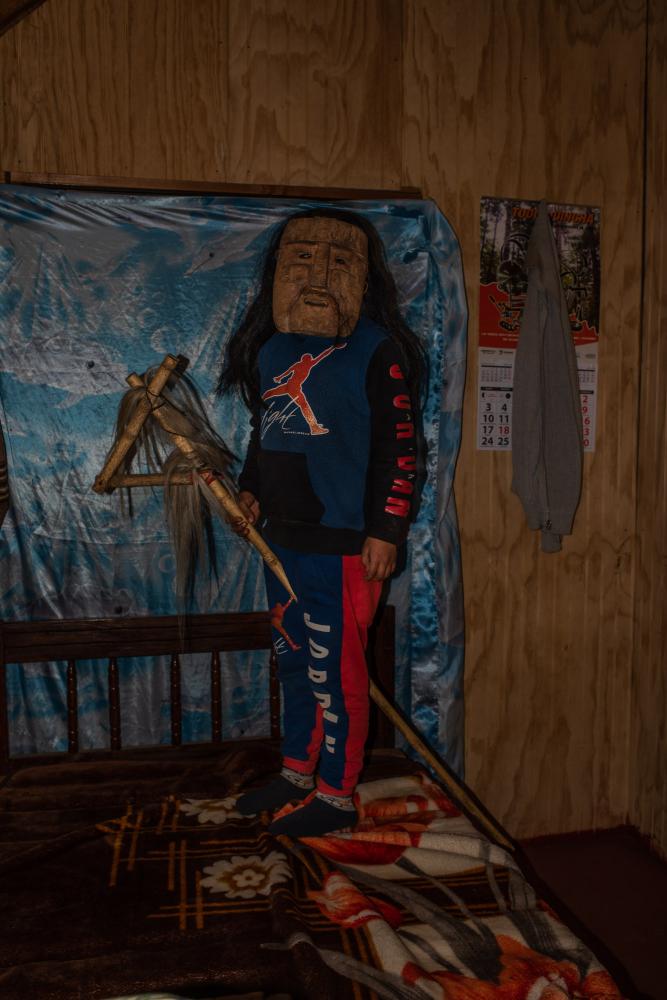
Weliwen Curamil(9) son of Alberto Curamil, Mapuche political prisoner and 2019 Goldman environmental prize, which he received in jail. In this photo Weliwen wears a Kollón mask, used in Mapuche ceremonies to ward off evil spirits. Curacautin Araucania region, Chile. August 11th, 2019.

The Araucaria is the fundamental tree in the religious and economic life of the Mapuche-Pewenche people. Almost all the forests of this species are in Wallmapu called today Araucanía. the seed of the araucaria has been used for centuries to make flour with which tortillas can be prepared, in addition to fermented drinks. Conguillio, Araucanía region. Chile. August 9th, 2019.
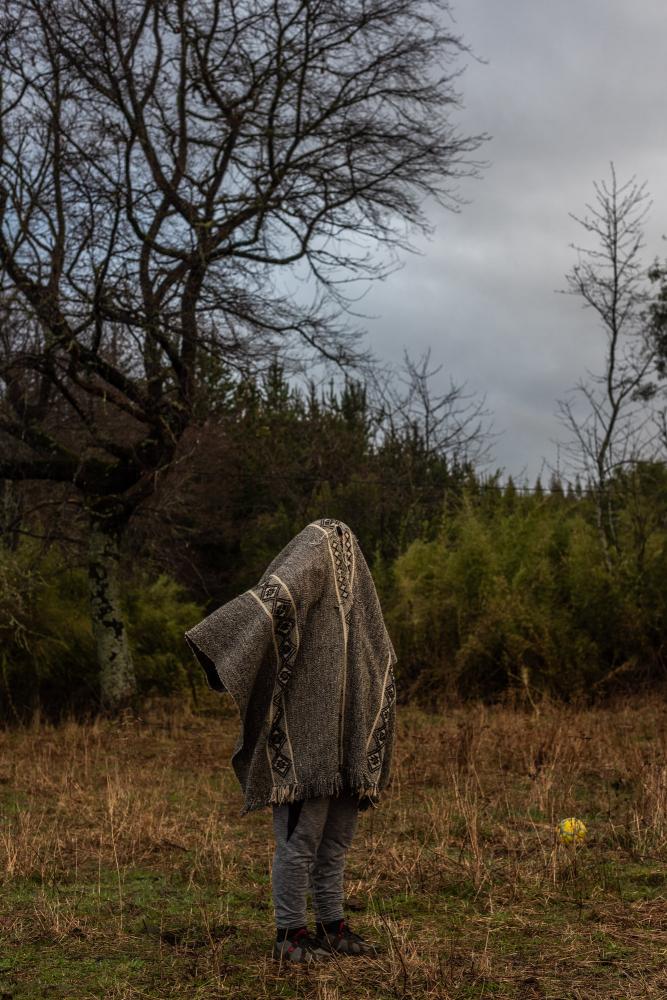
Moises Curamil(15) son of Alberto Curamil, Mapuche political prisoner and 2019 Goldman environmental prize, which he received in jail. Here, Moises is fitting a traditional poncho or manta, Mapuche traditional warm clothing. Curacautin Araucania region, Chile. August 11th, 2019.
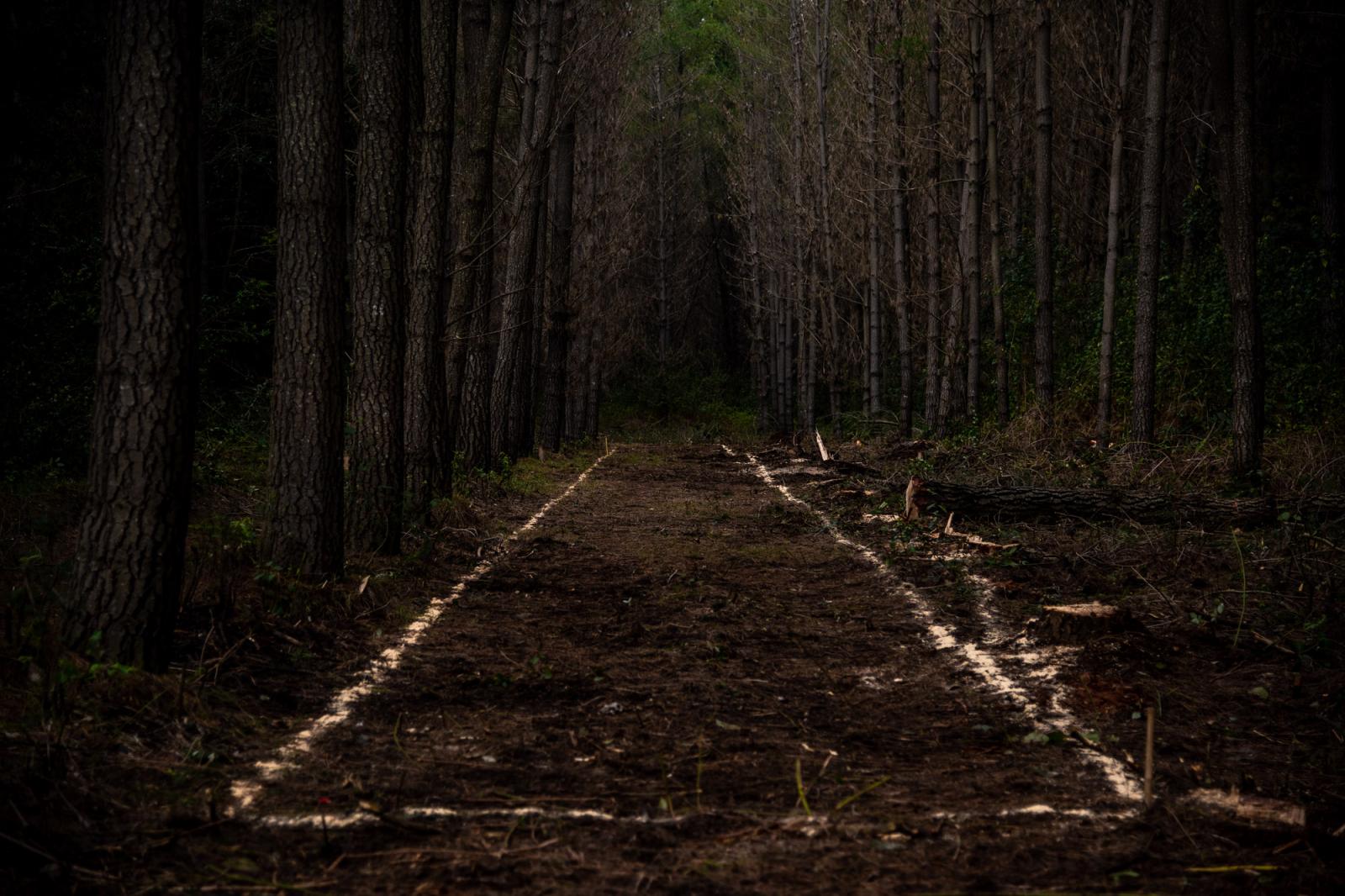
A court to play Palín -a traditional Mapuche game- is drawn in the middle of a forest of non-native species (pine and eucalyptus) owns by the Mininco forestry company. Communities in resistance often plays Palín-Weichan before they will starts a land recovery process as a way to be ready for the fight. Collipulli area. Araucanía. Chile. October 4th, 2019.

A military policeman stands guard at the entrance of the Temucuicui Mapuche Community on June 25th. 2023. Araucanía, Chile

A lagoon near Lof Dawulko Karulen community on March 3rd, 2022. Araucanía, Chile
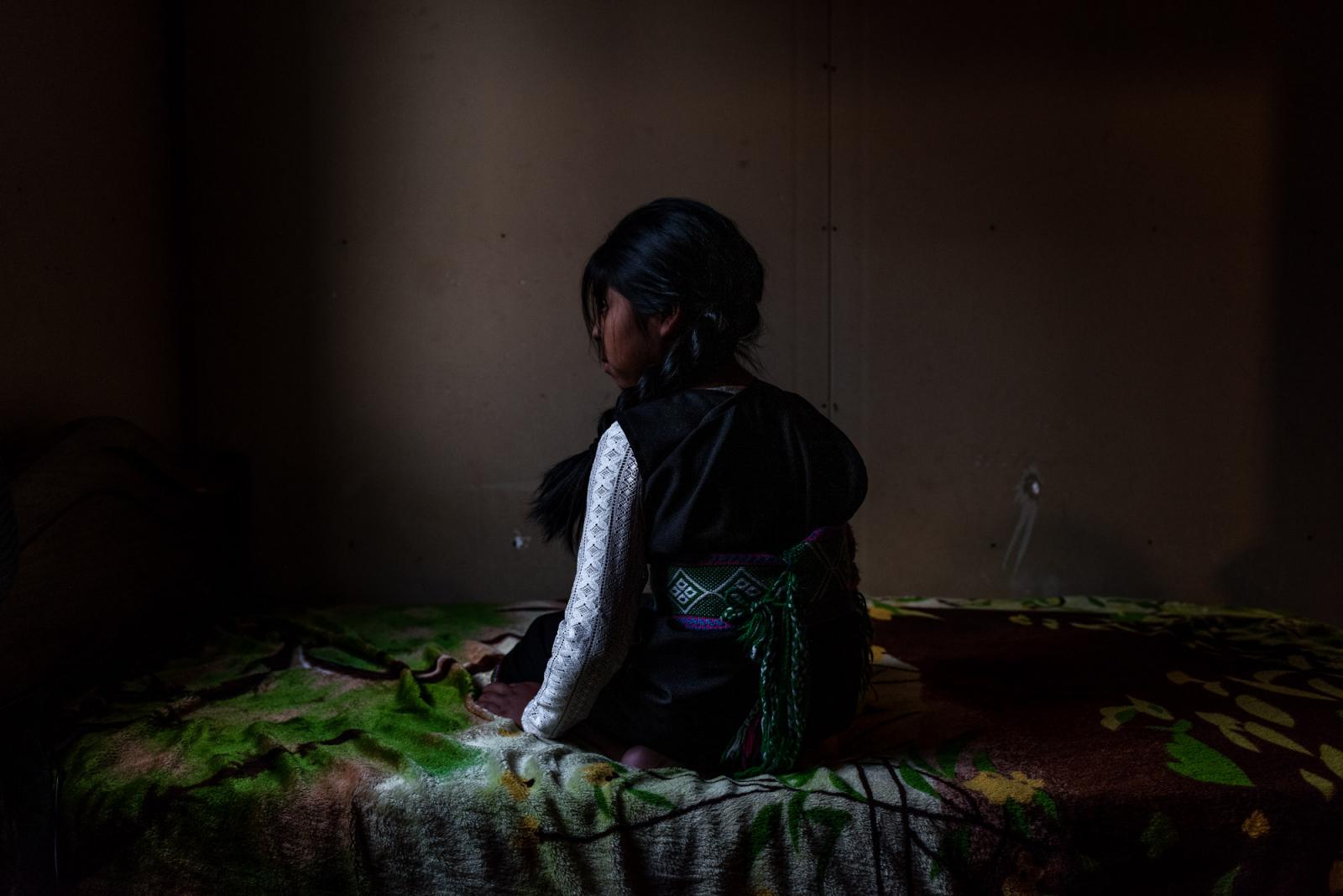
T. H. (9) has seen his father who is an important Werkén (traditional authority spokesperson) been imprisoned by the police several times. Collipulli, Aracaunia. Chile. April, 9th, 2019.
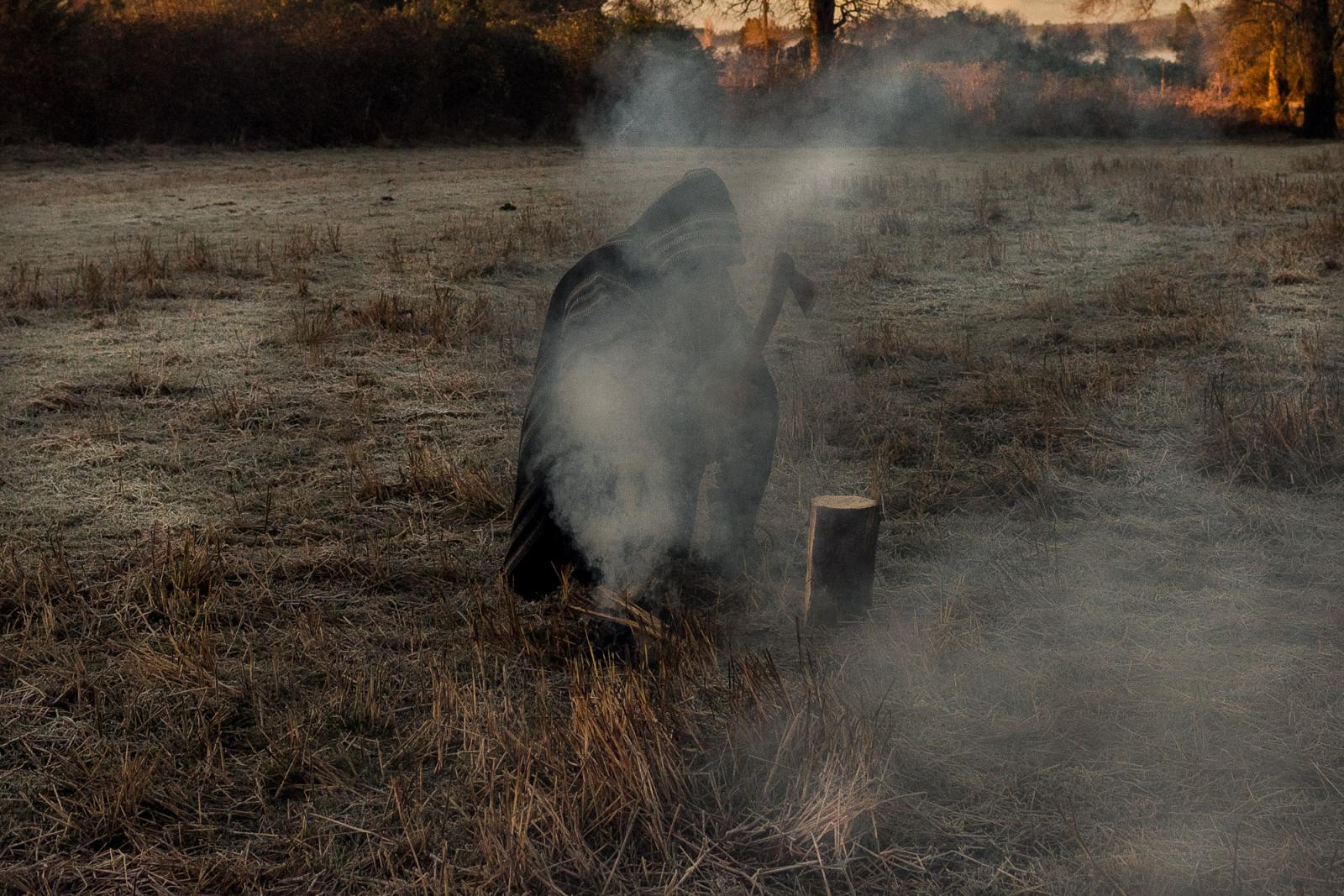
A Mapuche cuts a piece of firewood after the celebration of a Ngillatun, a traditional ceremony to start the recovery of a territory. Also, works as a connection with the spiritual world to ask for well-being, strengthen the union of the community or thank the benefits received. August 7th, 2019. Curaco, Araucanía region, Chile.

Mario Mila Millalen, senior Mapuche political leader, walks through his lands in Loncoche, Araucania region, Chile, on Friday, Aug. 12, 2022.

A horse's heart for the preparations of the Wexipantu ceremony (New year) at Lof Rdanco, Curacautín, Araucanía. June 20th. 2023.

Non-native pine forest fields from the forest industry seen on February 28th, 2022. Araucanía, Chile
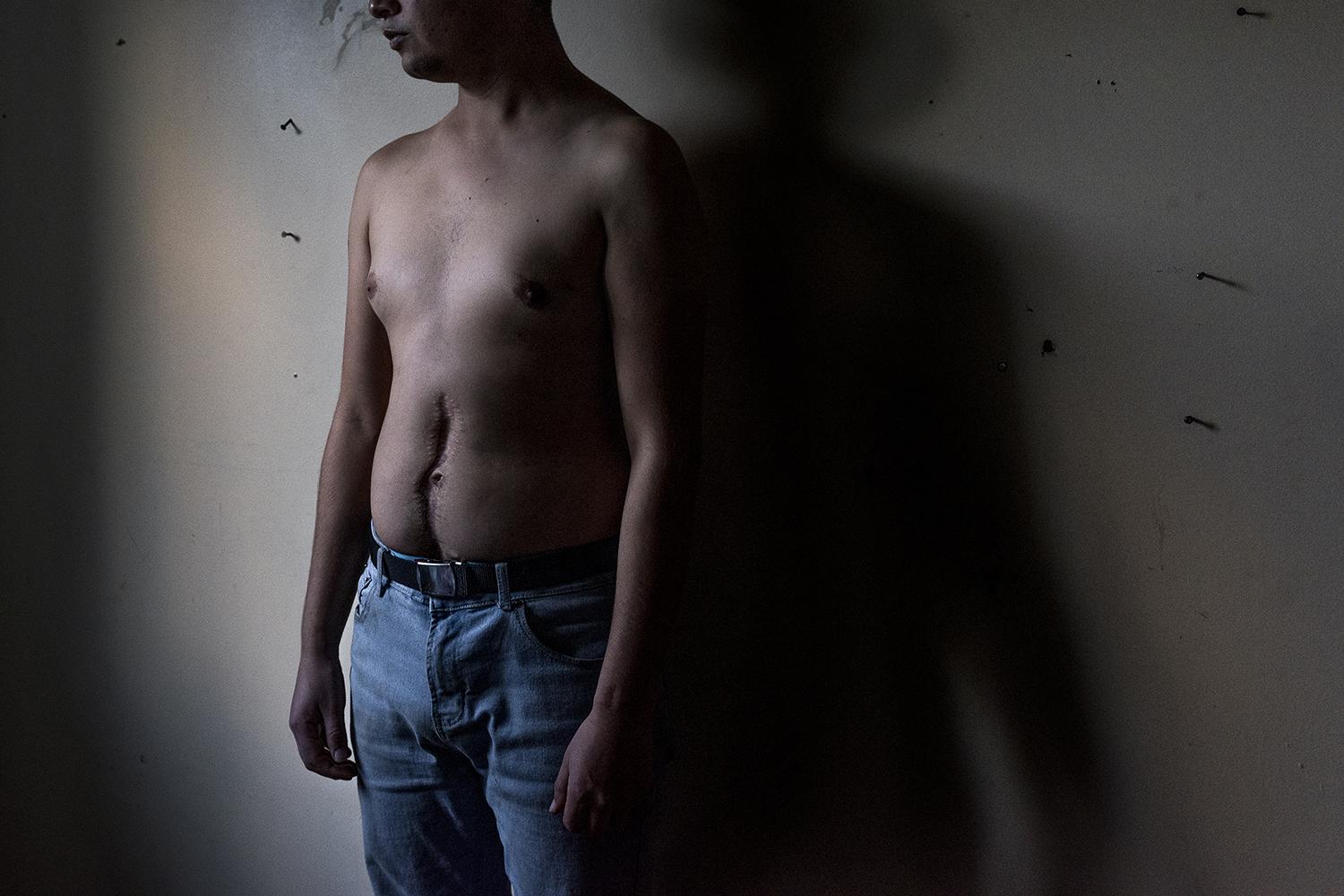
Brandon Hernandez Huentecol was shot in the back while immobilized by sergeant Christian Rivera who was sentenced to 3 years probation. Brandon still has over 80 lead bullets in his body. (He was impacted with more than 130) Curaco, Araucanía region. Chile. April 18th, 2019.

Wexipantu ceremony (New year) ritual at Lof Rdanco, Curacautín. Araucanía. June 23rd. 2023.

A tree stands in a field near Collipulli, Araucanía region. This area has been labeled as red zone due to the ongoing land conflict between the state, landowners and Mapuche communities. Collipulli region, Araucanía. Chile. April 18th, 2019.